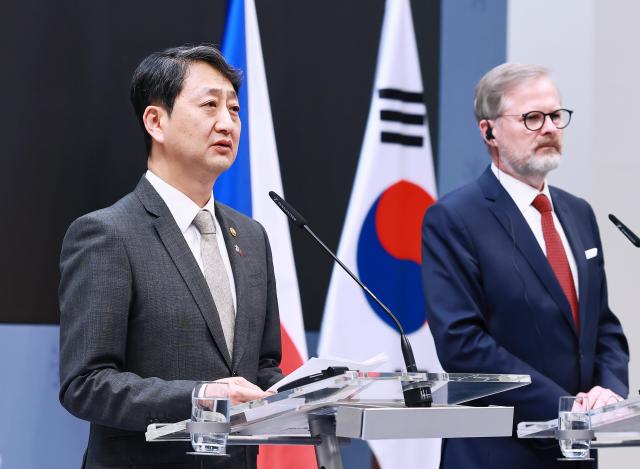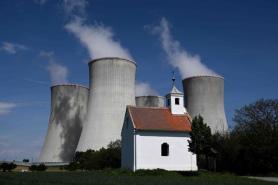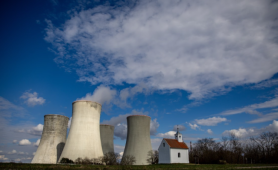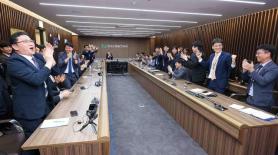
SEOUL, May 8 (AJP) - South Korea and the Czech Republic have signed a suite of bilateral agreements aimed at strengthening cooperation in nuclear energy and advanced technology sectors, even as a key contract for the construction of nuclear reactors was postponed by a Czech court ruling.
In a two-day diplomatic visit led by South Korean Minister of Trade, Industry and Energy Ahn Duk-geun, the two countries signed 14 MOUs and cooperation agreements, underscoring a shared commitment to long-term strategic collaboration.
Minister Ahn met with Czech Prime Minister Petr Fiala and Senate President Miloš Vystrčil in Prague, reaffirming bilateral ties amid growing energy and technological challenges in Europe.
The centerpiece of the talks — a planned contract between Korea Hydro & Nuclear Power (KHNP) and Czech energy company ČEZ to construct two nuclear reactors at the Dukovany site — was delayed following a court decision a day earlier.
While details of the legal ruling remain limited, the postponement introduced a notable complication into what had been anticipated as a major breakthrough in South Korea’s push to export nuclear technology.
Still, officials from both nations pressed ahead with the broader agenda. During the meetings, Ahn and Fiala discussed partnerships spanning industry, energy, construction, infrastructure, and science and technology.
In the presence of Prime Minister Fiala, the two countries' industry ministers signed a renewed nuclear cooperation agreement, building on a memorandum signed last year. The pact includes commitments by South Korea to support the Dukovany project, participate in nuclear development in third countries, and collaborate on the construction of two additional reactors in the Czech Republic.
As part of the broader effort, KHNP and its consortium, known as “Team Korea,” signed ten MOUs with Czech companies aimed at facilitating technical cooperation and supply chain partnerships for the country’s planned nuclear expansion.
Beyond energy, the two governments signaled deeper ties in future-focused industries. A new memorandum on battery cooperation was signed, with both countries agreeing to align their industrial policies in response to the European Union’s forthcoming battery regulations.
Additional agreements included initiatives to support academic and research institutions, such as partnerships between South Korean institutes and Czech universities to establish joint R&D centers. Among them were plans for an advanced vehicle technology hub in Ostrava and a robotics cooperation center in Prague.
“This year marks the 35th anniversary of diplomatic ties and the 10th anniversary of our strategic partnership,” said Ahn. “South Korea and the Czech Republic have built a relationship of trust. We will maintain close communication with the Czech side to reach a final agreement on the nuclear project as soon as possible.”
Copyright ⓒ Aju Press All rights reserved.




